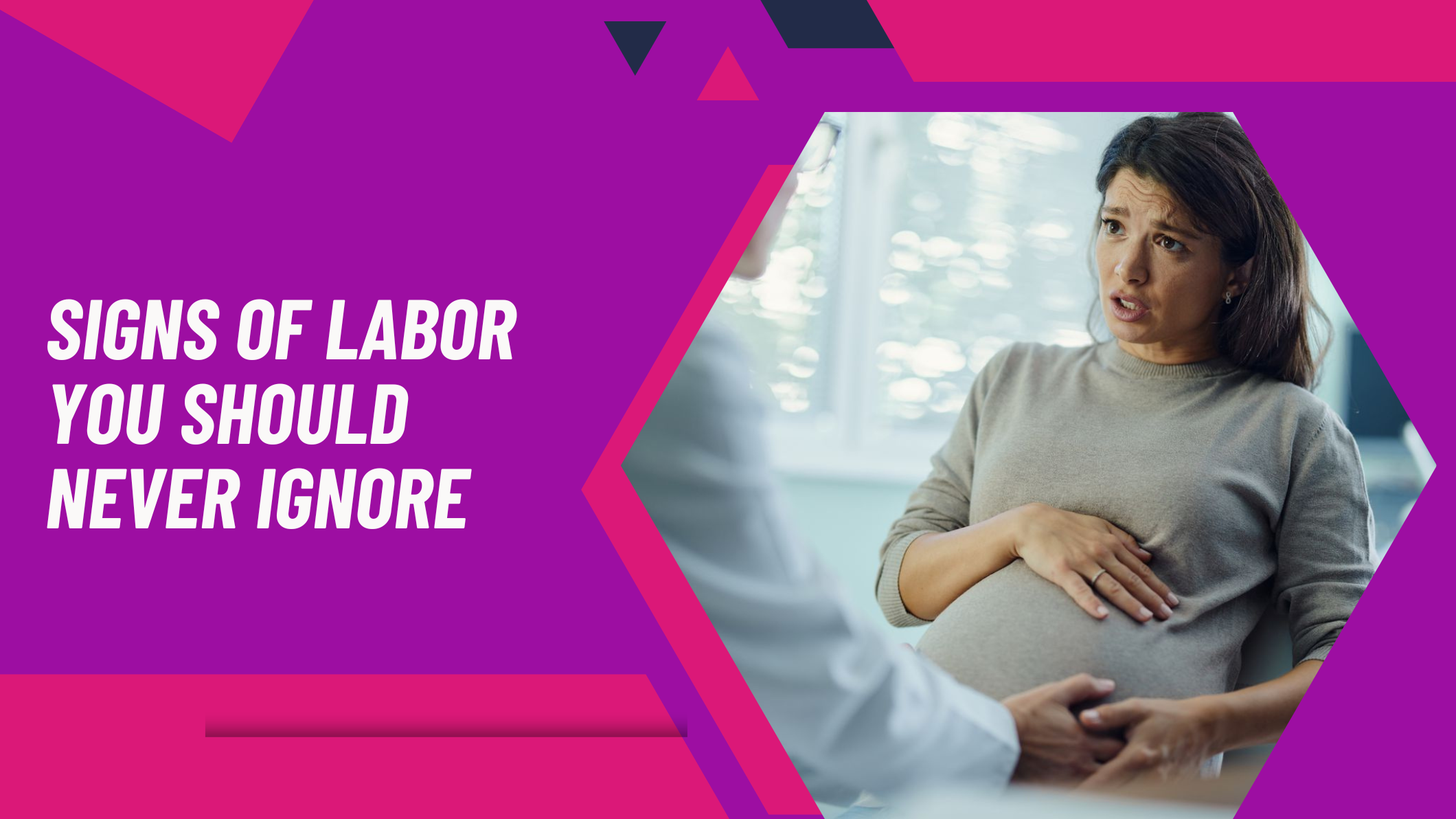
As the due date approaches, many expectant mothers eagerly await the first signs of labor. While some changes are normal as your body prepares for childbirth, certain symptoms can signal that labor is starting—or that something more serious may be happening. Recognizing these signs early can help ensure a safe and timely delivery. Understanding what’s normal and what’s not will give you confidence and peace of mind as you near one of the most important moments of your life.
Understanding the Early Signs of Labor
Before active labor begins, your body goes through a series of changes to prepare for delivery. These early signs of labor can appear days—or even weeks—before childbirth. One of the first indicators is lightening, which occurs when the baby drops lower into your pelvis, making it easier to breathe but increasing pressure on your bladder. Another common sign is the loss of the mucus plug, a thick discharge that indicates your cervix is beginning to dilate.
You may also experience mild, irregular contractions known as Braxton Hicks contractions. These “practice contractions” are usually not painful and may subside with rest or hydration. However, as true labor approaches, contractions become stronger, more regular, and closer together. Other early signs may include back pain, nesting instincts, or a slight weight loss due to hormonal changes.
While these symptoms are normal, it’s important to stay observant and consult your healthcare provider if you are unsure whether labor has begun, especially if your contractions become frequent or you experience intense pain.
Warning Signs That Labor May Be Starting
1. Regular and Painful Contractions
One of the clearest signs that you’re in true labor is the presence of regular, rhythmic contractions that gradually increase in intensity and frequency. Unlike Braxton Hicks contractions, true labor contractions do not go away when you change positions or rest. They typically start in the lower back and move toward the front of your abdomen, lasting about 30 to 70 seconds each. When contractions occur every five minutes and last for at least an hour, it’s time to contact your doctor or head to the hospital.
2. Water Breaking
When the amniotic sac ruptures—commonly referred to as your “water breaking”—it’s a definite sign that labor is imminent. This can happen as a sudden gush of fluid or a steady trickle. The fluid should be clear or slightly pinkish; if it’s green, brown, or has an odor, contact your healthcare provider immediately, as this may indicate fetal distress or infection. Once your water breaks, delivery usually occurs within 24 hours, so medical evaluation is essential to prevent complications.
3. Persistent Lower Back Pain and Pressure
Some women experience intense, continuous lower back pain or pressure in the pelvic area as a sign of early labor. This discomfort is caused by the baby’s position as it moves down the birth canal. If you notice constant pressure, cramping, or pain that doesn’t ease with rest, it may indicate that labor is progressing. It’s especially important to seek immediate care if the pain is accompanied by bleeding, severe cramps, or decreased fetal movement.
When to Contact Your Doctor Immediately
While many labor signs are natural, some symptoms should never be ignored. If you experience heavy vaginal bleeding, severe abdominal pain, vision changes, high blood pressure, or fever, seek medical attention immediately. These may be signs of serious conditions such as placental abruption, preeclampsia, or infection—all of which require urgent care. Additionally, if you suspect preterm labor (before 37 weeks), contact your pregnancy specialist doctor right away to ensure both your safety and your baby’s health.
Knowing the signs of labor and acting promptly can make a significant difference in ensuring a safe and smooth delivery experience. Every pregnancy is unique, so it’s important to listen to your body and maintain open communication with your healthcare provider.
If you are nearing your delivery date or experiencing any signs of labor, consult Dr. Preeti Tandon—a trusted specialist who provides the best services and compassionate care to guide you through every stage of pregnancy and childbirth. Her expertise and personalized approach ensure the safety and comfort of both mother and baby during this important journey.



